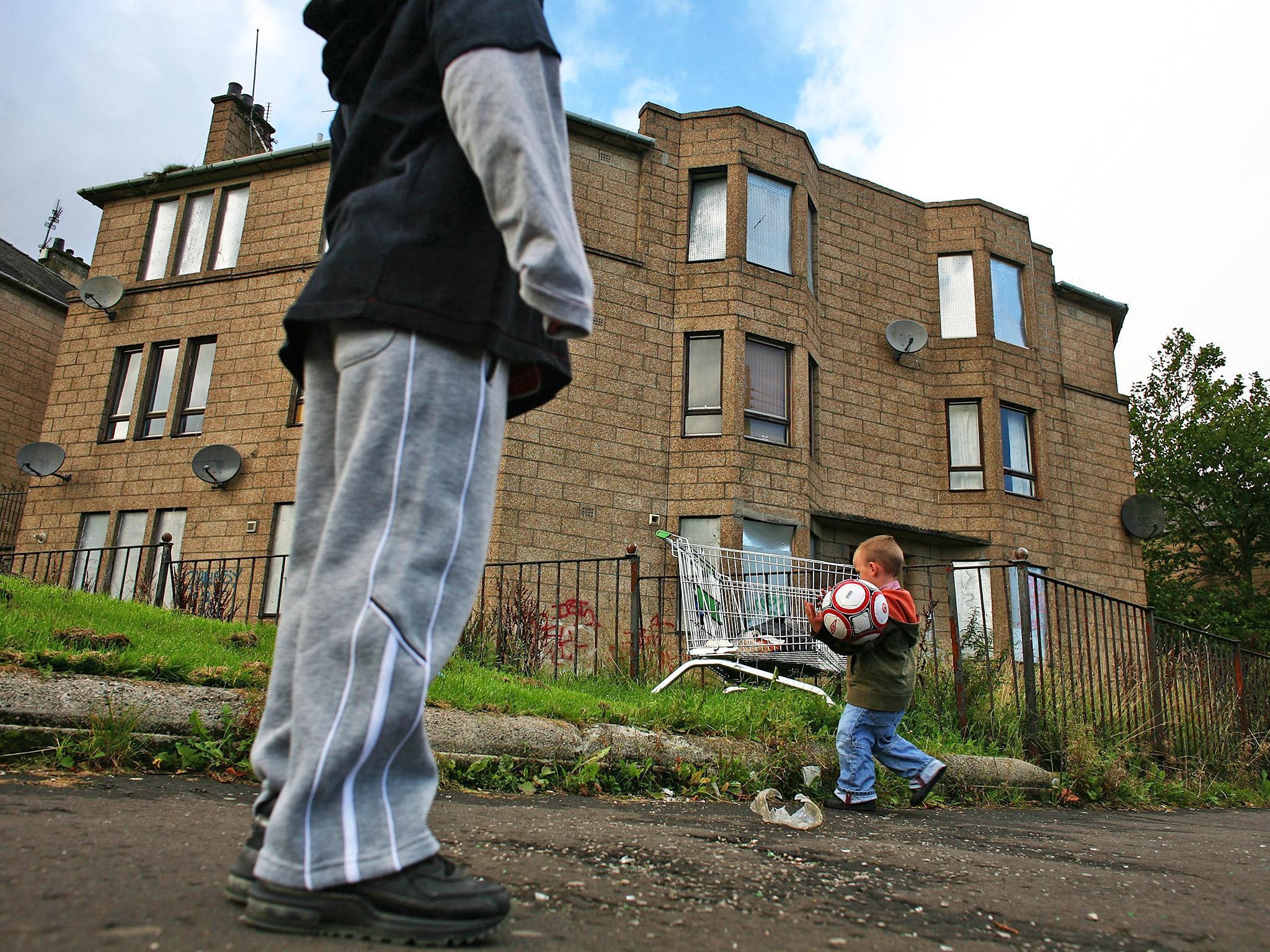Tory spending plans will see child poverty rise to record high, new analysis reveals
More than a third of children expected to be living below breadline by end of next parliament

Child poverty will soar to a record high under Conservative spending plans, according a new analysis highlighting a lack of ideas to tackle the deepening crisis.
Boris Johnson’s manifesto offers “no changes to existing policy” which has seen family benefits slashed while pensioner incomes are protected, it has concluded.
As a result, a staggering 34 per cent of children are expected to be living below the breadline by the end of the next parliament – a rise of 600,000 and the highest proportion since records began in the early 1960s.
Even the far-more-generous Labour and Liberal Democrat plans would only succeed in stabilising child poverty numbers, without cutting the “already high levels”, the Resolution Foundation think-tank has warned.
The conclusions were condemned by the Child Poverty Action Group, which called for a proper strategy to “the top priority for whichever party forms the next government”.
“Child poverty is rising and every party leader should be alarmed by the increase and the lost opportunities it brings,” said Alison Garnham, the organisation’s chief executive.
Experts have long been predicting a rise in children living in relative poverty – those in families with less than 60 per cent of median income – mainly because of harsh benefit cuts.
The proportion reached a low of about 27 per cent at the end of Labour’s years in power, now stands at 30 per cent – and is forecast to reach 34 per cent by 2024.
“Under the Conservatives little is set to change, and child poverty risks reaching a record high in the coming years,” Laura Gardiner, the Resolution Foundation’s research director.
“Labour and Liberal Democrat pledges to spend £9bn more would mean child poverty being over 500,000 lower than under Conservative plans.
“However, this would not do enough to see child poverty fall from today’s already high levels.”
The report, entitled Shape of Welfare to Come, has found that spending on benefits is set to rise from 10 per cent of GDP today to around 12 per cent over the next 50 years.
However, this growth is largely because of “or ageing society” – a trend that will be exacerbated if Mr Johnson wins power and its manifesto enacted.
It proposes keeping the pensioner “triple lock”, guaranteeing an inflation or above annual increase in the state pension, as well as pensioner benefits including the winter fuel payment and bus pass.
The Tories will keep the two-child limit on benefits, which has yet to fully take effect and which Labour would scrap.
The benefits freeze will end after four years, but has left the average couple with children in the bottom half of the income distribution £580 a year worse off, the foundation’s report says.
Overall, benefits for working age households will be around £34bn a year lower on current plans than had the 2010 benefit system remained in place.
Join our commenting forum
Join thought-provoking conversations, follow other Independent readers and see their replies
Comments
Bookmark popover
Removed from bookmarks